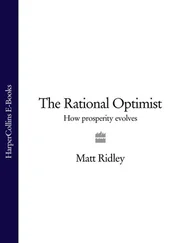Genome - Matt Ridley
Здесь есть возможность читать онлайн «Genome - Matt Ridley» — ознакомительный отрывок электронной книги совершенно бесплатно, а после прочтения отрывка купить полную версию. В некоторых случаях можно слушать аудио, скачать через торрент в формате fb2 и присутствует краткое содержание. Жанр: Старинная литература, на английском языке. Описание произведения, (предисловие) а так же отзывы посетителей доступны на портале библиотеки ЛибКат.
- Название:Matt Ridley
- Автор:
- Жанр:
- Год:неизвестен
- ISBN:нет данных
- Рейтинг книги:5 / 5. Голосов: 1
-
Избранное:Добавить в избранное
- Отзывы:
-
Ваша оценка:
- 100
- 1
- 2
- 3
- 4
- 5
Matt Ridley: краткое содержание, описание и аннотация
Предлагаем к чтению аннотацию, описание, краткое содержание или предисловие (зависит от того, что написал сам автор книги «Matt Ridley»). Если вы не нашли необходимую информацию о книге — напишите в комментариях, мы постараемся отыскать её.
Matt Ridley — читать онлайн ознакомительный отрывок
Ниже представлен текст книги, разбитый по страницам. Система сохранения места последней прочитанной страницы, позволяет с удобством читать онлайн бесплатно книгу «Matt Ridley», без необходимости каждый раз заново искать на чём Вы остановились. Поставьте закладку, и сможете в любой момент перейти на страницу, на которой закончили чтение.
Интервал:
Закладка:
But Britain, almost alone among Protestant industrial countries, never passed a eugenic law: that is, it never passed a law allowing the government to interfere in the individual's right to breed. In particular, there was never a British law preventing marriage of the mentally deficient, and there was never a British law allowing compulsory sterilisation by the state on the grounds of feeble-mindedness. (This is not to deny that there has been individual
'freelance' practice of cajoled sterilisation by doctors or hospitals.) Britain was not unique; in countries where the influence of the Roman Catholic church was strong, there were no eugenic laws.
The Netherlands avoided passing such laws. The Soviet Union, more concerned about purging and killing clever people than dull ones, never put such a law on its books. But Britain stands out, because it was the source of much — indeed most — eugenic science and propaganda in the first forty years of the twentieth century. Rather than ask how so many countries could have followed such cruel practices, it is instructive to turn the question on its head: why did Britain resist the temptation? Who deserves the credit?
Not the scientists. Scientists like to tell themselves today that eugenics was always seen as a 'pseudoscience' and frowned on by true scientists, especially after the rediscovery of Mendelism (which reveals how many more silent carriers of mutations there are than frank mutants), but there is little in the written record to support this. Most scientists welcomed the flattery of being treated as experts in a new technocracy. They were perpetually urging immediate action by government. (In Germany, more than half of all academic biologists joined the Nazi party - a higher proportion than in any other professional group - and not one criticised eugenics. ) A case in point is Sir Ronald Fisher, yet another founder of modern statistics (although Galton, Pearson and Fisher were great 2 9 2 G E N O M E
statisticians, nobody has concluded that statistics is as dangerous as genetics). Fisher was a true Mendelian, but he was also vice president of the Eugenics Society. He was obsessed with what he called 'the redistribution of the incidence of reproduction' from the upper classes to the poor: the fact that poor people had more children than rich people. Even later critics of eugenics like Julian Huxley and J. B. S. Haldane were supporters before 1920; it was the crudity and bias with which eugenic policies came to be adopted in the United States that they complained about, not the principle.
Nor could the socialists claim credit for stopping eugenics.
Although the Labour party opposed eugenics by the 1930s, the socialist movement in general provided much of the intellectual ammunition for eugenics before that. You have to dig hard to find a prominent British socialist in the first thirty years of the century who expressed even faint opposition to eugenic policies. It is extra-ordinarily easy to find pro-eugenic quotes from Fabians of the day.
H. G. Wells, J. M. Keynes, George Bernard Shaw, Havelock Ellis, Harold Laski, Sidney and Beatrice Webb - all said creepy things about the urgent need to stop stupid or disabled people from breeding. A character in Shaw's Man and superman says: 'Being cowards, we defeat natural selection under cover of philanthropy: being slug-gards, we neglect artificial selection under cover of delicacy and morality.'
The works of H. G. Wells are especially rich in juicy quotes: 'The children people bring into the world can be no more their private concern entirely than the disease germs they disseminate or the noises a man makes in a thin-floored flat.' Or 'The swarms of black, and brown, and dirty white, and yellow people . . . will have to go.'
Or 'It has become apparent that whole masses of human population are, as a whole, inferior in their claim upon the future . . . to give them equality is to sink to their level, to protect and cherish them is to be swamped in their fecundity.' He added, reassuringly, 'All such killing will be done with an opiate.' (It wasn't.)4
Socialists, with their belief in planning and their readiness to put the state in a position of power over the individual, were ready-made E U G E N I C S 293
for the eugenic message. Breeding, too, was ripe for nationalisation.
It was among Pearson's friends in the Fabian Society that eugenics first took root as a popular theme. Eugenics was grist to the mill of their socialism. Eugenics was a progressive philosophy, and called for a role for the state.
Soon the Conservatives and Liberals were just as enthusiastic.
Arthur Balfour, ex-prime minister, chaired the first International Eugenics Conference in London in 1912 and the sponsoring vice-presidents included the Lord Chief Justice and Winston Churchill.
The Oxford Union approved the principles of eugenics by nearly two to one in 1911. As Churchill put it, 'the multiplication of the feeble-minded' was 'a very terrible danger to the race'.
To be sure, there were a few lone voices of dissent. One or two intellectuals remained suspicious, among them Hilaire Belloc and G. K. Chesterton, who wrote that 'eugenicists had discovered how to combine hardening of the heart with softening of the head'. But be in no doubt that most Britons were in favour of eugenic laws.
There were two moments when Britain very nearly did pass eugenic laws: in 1913 and 1934. In the first case, the attempt was thwarted by brave and often lonely opponents swimming against the tide of conventional wisdom. In 1904 the government set up a Royal Commission under the Earl of Radnor on the 'care and control of the feeble-minded'. When it reported in 1908, it took a strongly hereditarian view of mental deficiency, which was not surprising given that many of its members were paid-up eugenists. As Gerry Anderson has demonstrated in a recent Cambridge thesis,5 there followed a period of sustained lobbying by pressure groups to try to persuade the government to act. The Home Office received hundreds of resolutions from county and borough councils and from education committees, urging the passage of a bill that would restrict reproduction by the 'unfit'. The new Eugenics Education Society bombarded M P s and had meetings with the Home Secretary to further the cause.
For a while nothing happened. The Home Secretary, Herbert Gladstone, was unsympathetic. But when he was replaced by 2 9 4 G E N O M E
Winston Churchill in 1910, eugenics at last had an ardent champion at the cabinet table. Churchill had already in 1909 circulated as a cabinet paper a pro-eugenics speech by Alfred Tredgold. In December 1910, installed in the Home Office, Churchill wrote to the Prime Minister, Herbert Asquith, advocating urgent eugenic legislation and concluding: 'I feel that the source from which the stream of madness is fed should be cut off and sealed up before another year has passed.'
He wanted for mental patients that their 'curse would die with them'.
In case there is any doubt of what he meant, Wilfrid Scawen Blunt wrote that Churchill was already privately advocating the use of X-rays and operations to sterilise the mentally unfit.
The constitutional crises of 1910 and 1911 prevented Churchill introducing a bill and he moved on to the Admiralty. But by 1912
the clamour for legislation had revived and a Tory backbencher, Gershom Stewart, eventually forced the government's hand by introducing his own private member's bill on the matter. In 1912 the new Home Secretary, Reginald McKenna, somewhat reluctantly brought in a government bill, the Mental Deficiency Bill. The bill would restrict procreation by feebled-minded people and would punish those who married mental defectives. It was an open secret that it could be amended to allow compulsory sterilisation as soon as practicable.
Читать дальшеИнтервал:
Закладка:
Похожие книги на «Matt Ridley»
Представляем Вашему вниманию похожие книги на «Matt Ridley» списком для выбора. Мы отобрали схожую по названию и смыслу литературу в надежде предоставить читателям больше вариантов отыскать новые, интересные, ещё непрочитанные произведения.
Обсуждение, отзывы о книге «Matt Ridley» и просто собственные мнения читателей. Оставьте ваши комментарии, напишите, что Вы думаете о произведении, его смысле или главных героях. Укажите что конкретно понравилось, а что нет, и почему Вы так считаете.












